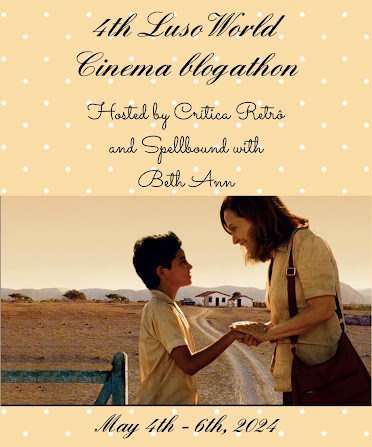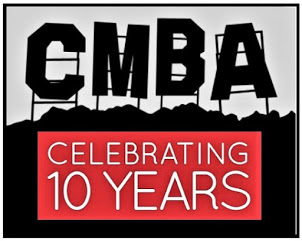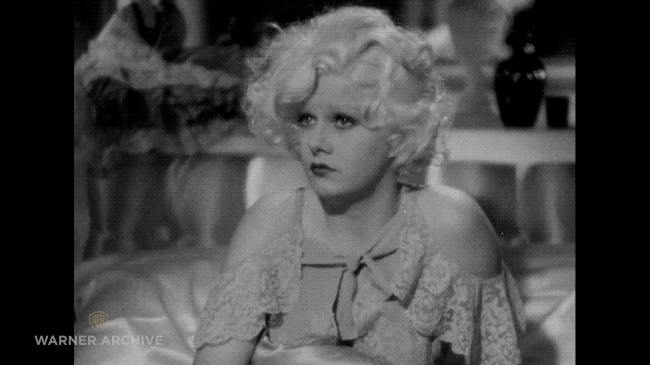Even if you haven’t read George Orwell’s dystopian classic, 1984, you’re familiar with its dark political satire.
A cruel dictator is named “Big Brother”, the Ministry of Love conducts hate rallies, and the Ministry of Truth redrafts history.
It’s a cautionary tale for any age. Sadly, because human history has recurring themes, despotic governments are not relics from the past.
What is curious about 1984, though, is the number of times it’s been adapted to the big screen. As of this writing, the novel has been adapted to the big screen only twice – in 1984 and 1956.
Our focus today is the 1956 version, criticized for its loose adaptation of Orwell’s novel, even though the opening credits say it was freely adapted.
It’s also been censured for its casting. This version was filmed in Britain, but two of the main characters, Winston Smith and Julia, are portrayed by American actors. Jan Sterling, who plays Julia, blends into this dystopian London society, but Smith (Edmond O’Brien) does not, which we’ll examine later.
The film has also been criticized for downplaying the level of terror in the novel and turning the story into a melodrama. For example:

Reality TV of the future. Image: eBay
In effect, the movie becomes the ol’ Thwarted Romance trope: Star-crossed lovers denied happiness by someone Out To Get Them.
Given all these criticisms, you’d think the film is a dismal failure.
But it’s not. In fact, we think these elements make it a film to watch.
O’Brien’s character, officially known as 6748 Smith W, is guilty of many seemingly minor infractions: He forgets his name badge, he skips mandatory public rallies, he records his anti-establishment thoughts in a diary.
As noted earlier, O’Brien doesn’t look like everyone else in this film. He’s bulky, not slim, and his slightly-rumpled appearance doesn’t mesh with those around him.
His accent also makes him stick out. Every time he speaks, he’s basically shouting, I Do Not Belong. Everything about him is nonconformist, which – as you know – means Trouble sooner or later.
Also, the poor slob has a fatal flaw: He’s a romantic.
He falls in love with Sterling, which is a Problem because nothing must override love for Big Brother. (We see this at work in at least one regime today.)
Therefore, in true melodramatic fashion, romantic love must be squashed. This is achieved through a continual brainwashing: Loudspeakers trumpet “Long live Big Brother!” and, “Even in your sleep, Big Brother is watching.”
This is manageable melodrama so far, if a bit claustrophobic. But then we’re introduced to the mandatory Two Minutes of Hate, where attendees chant, “Liar! Liar!” at footage of the enemy leader. They scream, “Hate! Hate! Hate!” with clenched fists.
This is not a feel-good moment. This is terrifying. There’s no melodrama now.
The 1956 version of 1984 is a bleak, gritty-looking film that keeps you a little off balance. Shots are narrow and tight, like the society we seen on screen. Camera angles increasingly unsettle and confuse us, as though we’re trapped with O’Brien’s character.
This is most evident after he has been denounced and is detained in the Ministry of Love. The interrogation is conducted by Michael Redgrave, who has all the smug, restrained power of a man who chooses not to crush you, yet.
“We do not destroy the heretic; we convert him,” explains Redgrave in the manner of a no-nonsense medical specialist. “You will be hollow. We will squeeze you empty, then we will fill you with the love of Big Brother.”
1984 shows us a world where dissension is heresy and people who disagree are Enemies. Melodrama or no, it warns us of a society were no one is safe.
This is part of the END OF THE WORLD BLOGATHON hosted by MovieMovie BlogBlog and The Midnite Drive-In.
1984: starring Edmond O’Brien, Michael Redgrave, Jan Sterling. Directed by Michael Anderson. Written by William Templeton & Ralph Gilbert Bettinson. Columbia Pictures Corp., B&W, 1956, 90 mins.















A nice account, Ruth. I’m something of a fan of the 1984 remake, but have seen the 1956 incarnation just the once, and that was quite a while ago. I’m told the one to watch is the 1954 TV version, but I haven’t gotten around to it yet.
LikeLiked by 1 person
They say the 1954 TV version is the one to watch, but I haven’t seen it yet either. However, I’ve bookmarked it on YouTube – God’s gift to parsimonious bloggers.
LikeLike
We’ll see who gets to it first . . . 🙂
LikeLiked by 1 person
It’s a long time since I’ve seen this (or any) version, but it strikes me that ” Star-crossed lovers denied happiness by someone Out To Get Them” isn’t a bad description of the book itself. The only divergence from the expected is the ending, which I can’t recall if it was somehow given a happy twist in this version.
LikeLiked by 1 person
Ah, you are so right. The “star-crossed lovers” scenario fits many genres, including dystopian novels.
In this version, I didn’t think the ending was such a diversion from the novel. I think it captured the feeling of it, i.e. not a happy ending but a logical one, which is always satisfying.
LikeLiked by 1 person
I wasn’t aware of this film’s existence. An ambitious project indeed, and my curiosity is piqued. O’Brien had a way of embodying his inner rage that was appropriately uncomfortable. The end of our personal world is the end of the world.
LikeLiked by 1 person
O’Brien, at first, seems like a strange choice as Winston Smith, but I realized he was an excellent choice. Like you said, he has a way with inner rage that suggests he’s capable of anything.
LikeLike
I haven’t seen this version, but read the book a bazillion years ago. It’s amazing how terrifying these old stories are these days.
LikeLiked by 1 person
Try Sinclair Lewis’s It Can’t Happen Here, published a decade and a half before Orwell’s novel and much more immediate in that it portrays a future fascist US presidency.
Its central character is a small-town journalist called Doremus Jessup. Toward the end of the novel he realizes that what put the fascists in power wasn’t all the fascist voters: it was “all the Doremus Jessups who saw the danger and did nothing.” It’s a line I’ve remembered ever since I read it, several decades ago, and that has affected my life choices accordingly..
No wonder the novel is virtually unknown — or at least was so until relatively recently — in its native land.
LikeLiked by 2 people
Add that to my reading list…
LikeLiked by 1 person
Your assessment of this adaptation as a “bleak, gritty-looking film” is not only accurate, but one that I think Orwell would have admired. Having read the book, I can imagine the challenges in bringing to the screen (ditto for Huxley’s BRAVE NEW WORLD). This 1984 may not be as thematically rich as Orwell’s book, but it’s still a movie of interest (as you noted) and worth watching.
LikeLiked by 1 person
I like to think Orwell would have liked this version, although many say the 1954 BBC version is the one to watch. At any rate, it would have been a challenge to adapt “1984” to the big screen, as you pointed out.
LikeLike
Overall I enjoyed this version better than the more up to date film. it works better in black and white. I do share your misgivings about the main couple, but they still work. The scene where they’re busted is a jolt. Redgrave and Pleasence are perfectly cast.
LikeLiked by 1 person
I agree re: Pleasance and Redgrave. They give magnificent performances.
I also think you make an excellent point about the story working better in black and white. I hadn’t considered that before, but it lends a gravity and uneasiness to the story.
LikeLike
I’ve not seen either film, or sadly, read the book. But in its own way, this seems like a must-watch. Reminds me of an amped-up version of Rod Serling’s “Eye of the Beholder”. It’s such a pity to look back at the many warnings men and women have tried to issue and then realize that most, if not all, of them have been ignored. Things may not seem quite as drastic or dramatic as what we see portrayed in the film, but I fear that society has in some ways wandered down this unpleasant rabbit hole.
LikeLiked by 1 person
Rod Serling’s “Eye of the Beholder” sounds intriguing. I’ll watch for it.
Sadly, I think you are correct about the 1984 rabbit hole, as you put it. I first read the story as a teenager and thought, “There’s no way this could happen in North America.” But I’m not so sure any more.
LikeLike
Am yet to read, or watch the two, “1984”‘s . In school we did a excerpt of George Orwell’s “Animal Farm”; but besides that, I doubt I’ve read any of his works.
Interesting review. This 1956 version, sounds worth checking out, despite the minor flaws.
LikeLiked by 1 person
If you get the chance to read “1984”, I recommend it. It’s a frightening, but relatively short, read.
I hope you’re able to see the 1954 film version. Like a previous commenter said, the stark black & white images are really suited to the story.
On another note, we started watching “Secret Superstar” with Amir Khan and the adorable Zahra Wasim. Really enjoying it!
LikeLiked by 1 person
I haven’t seen Secret Superstar (2017) yet. Thanks for the recommendations (Book & Movie). Teenager, Zaira Wasim won the “Critics’ Awards” @ this year’s Filmfare Awards.
Speaking of quick reads, I read this interesting novella last night. An English translation of Saratchandra Chattopadhyay Bengali novel “Parineeta” (written around 100 years ago; whilst the writer was residing in Burma). It’s less than 100 pages, and written in a manner even a small child can understand it (though it’s not a children’s book – after all it’s a secret love affair between a 25 year old man, and 13 year old girl, and a secret marriage between the two; a la Vladimir Nabokov’s Lolita; BUT of course this was neither a controversial book, nor a sexually explicit one, & was written at a time when marriage between an adult man and a child bride was the norm, in India)
LikeLiked by 2 people
I wish I could find this version. The 1984 version was pretty good, but I’ve not been able to locate the earlier version.
LikeLiked by 2 people
There is a version on YouTube, but the quality ain’t great.
Thanks for co-hosting this blogathon! It’s a terrific idea.
LikeLiked by 1 person
The remake is better, but this is quite good. The scenes between Redgrave and O’Brien are excellent!
LikeLiked by 2 people
I love the scenes between Redgrave and O’Brien. Some of the best scenes in the film.
LikeLiked by 2 people
Great summary of an excellent movie (and book, of course) — both of which, sadly, get more relevant every day. Thank you for contributing to the blogathon!
LikeLiked by 2 people
You said it. I hate that this story becomes more relevant each day…
Thanks for co-hosting this blogathon. Such a great idea! (I’ll be catching up on all the entries next week… I know they’ll be good.)
LikeLiked by 2 people
Great analysis. I haven’t seen the 1956 version, but I did see the John Hurt remake. I think V is for Vendetta is influenced by 1984.
LikeLiked by 1 person
Hopefully I will be able to catch this 1956 version of “1984.” I have always felt that Orwell’s novel was as much about the beauty of romance as it was about the terrors of Big Brother, so your review makes me eager to see this played out on screen.
LikeLiked by 1 person
You make a good point. “1984” does have a beautiful romance, and I don’t really focus on that aspect very much when reading the novel. I’m usually so freaked out by Big Brother & Co!
LikeLiked by 1 person
😁 As am I! After each reading I become paranoid. I believe Orwell manages tragedy, horror, and passion really well in this novel.
LikeLiked by 1 person